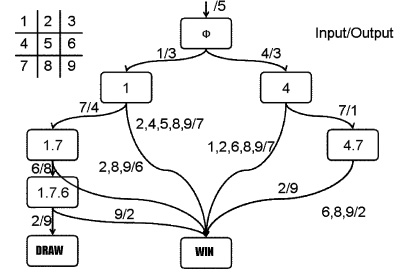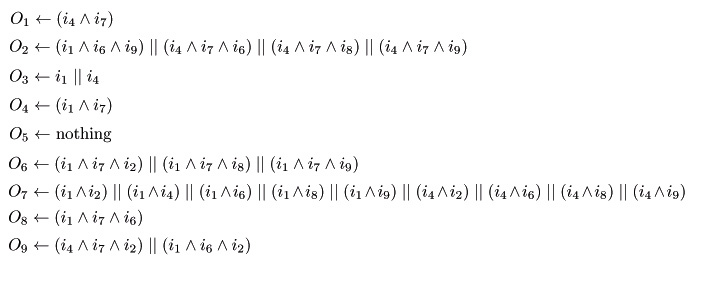Tokyo Alliance: Design/Method
From 2006.igem.org
(Difference between revisions)
| Line 26: | Line 26: | ||
; 3rd: SYANAC must choose sq#3 | ; 3rd: SYANAC must choose sq#3 | ||
| - | *SYANAC | + | *SYANAC |
| - | **25 | + | **25 combination patterns(Eliminating symmetrical pairs) [SYANAC] |
| + | **7 inputs of small-molecules | ||
The State Transition Diagram shown right describes SYANAC's behavior based on this rule. | The State Transition Diagram shown right describes SYANAC's behavior based on this rule. | ||
Revision as of 17:57, 16 October 2006
Contents |
Systematic design concept/method
Abstract Level
State Transition Diagram
- Combination of Noughts-and-Crosses
- 362,880(=9!)[patterns] (sum up all patterns)
- 255,168 (As a game)
- 26,830 (Eliminating symmetrical pairs)
We added the following rules to reduce the number of transition functions and inputs.
- 1st
- SYANAC goes to the center of the board. (sq#5)
- 2nd
- Human goes to the specific corner(sq#1) or the edge(sq#4) of the board.
- 3rd
- SYANAC must choose sq#3
- SYANAC
- 25 combination patterns(Eliminating symmetrical pairs) [SYANAC]
- 7 inputs of small-molecules
The State Transition Diagram shown right describes SYANAC's behavior based on this rule.
Logic Gates


